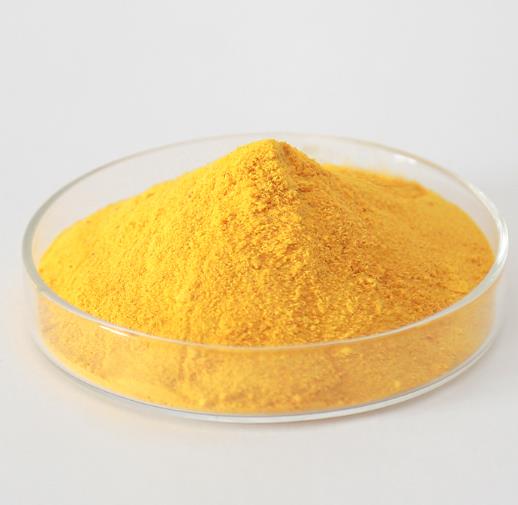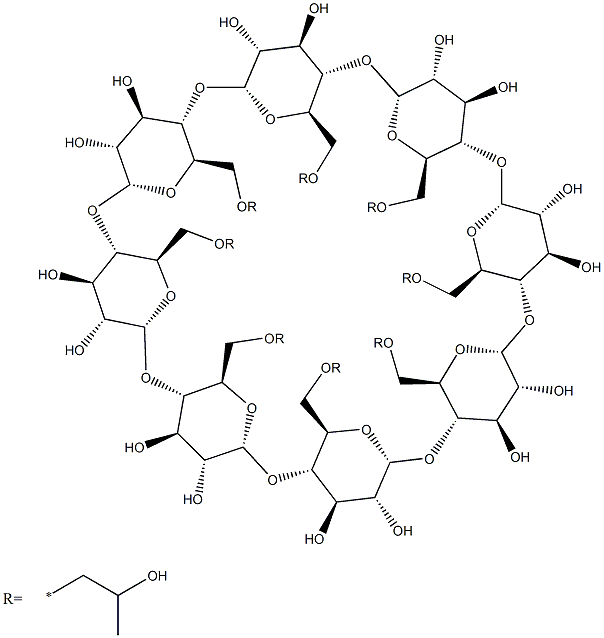Enhancing Drug Efficacy with (2-Hydroxypropyl)-γ-cyclodextrin: Synthesis, Applications, and Pharmacokinetics
Apr 23,2024
Introduction
Cyclodextrins are a group of structurally related natural products formed by sugar molecules bound together in a ring. These cyclic oligosaccharides are renowned for their ability to form host-guest complexes with a variety of molecules, rendering them invaluable in various chemical, pharmaceutical, and industrial applications. Among these, (2-Hydroxypropyl)-γ-cyclodextrin stands out due to its enhanced water solubility and reduced toxicity compared to its parent compounds[1].
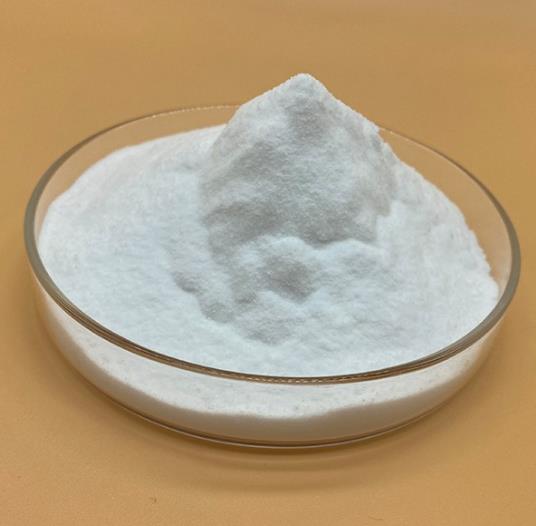
Figure 1 Characteristics of (2-Hydroxypropyl)-γ-cyclodextrin
Synthesis of (2-Hydroxypropyl)-γ-cyclodextrin
The synthesis of (2-Hydroxypropyl)-γ-cyclodextrin involves the chemical modification of γ-cyclodextrin, a naturally occurring molecule made up of eight glucopyranose units. The process starts with the alkylation of γ-cyclodextrin using propylene oxide under alkaline conditions. This reaction primarily occurs at the hydroxyl groups of the glucose residues, introducing hydroxypropyl side groups.
The degree of substitution and the distribution of the hydroxypropyl groups can significantly affect the physical and chemical properties of the final product. Typically, the reaction conditions such as temperature, reactant ratios, and the choice of catalyst are meticulously controlled to achieve the desired specification of (2-Hydroxypropyl)-γ-cyclodextrin. Advancements in synthesis technology have also allowed for greater control over these parameters, enhancing the efficiency and scalability of (2-Hydroxypropyl)-γ-cyclodextrin production.
Applications of (2-Hydroxypropyl)-γ-cyclodextrin
(2-Hydroxypropyl)-γ-cyclodextrin is extensively utilized in the pharmaceutical industry due to its ability to increase the solubility and stability of poorly soluble drugs. By forming inclusion complexes with drugs, (2-Hydroxypropyl)-γ-cyclodextrin can enhance the bioavailability of medications, thereby improving their therapeutic efficacy and safety profile. For example, it has been effectively used in the formulation of oral and injectable drugs where solubility poses a major challenge[2].
Beyond pharmaceuticals, (2-Hydroxypropyl)-γ-cyclodextrin finds applications in the food industry as a stabilizer and flavor enhancer. In cosmetics, it is used to stabilize volatile compounds such as fragrances and essential oils. The compound's non-toxic nature and ability to interact with biological membranes also open up potential uses in novel drug delivery systems, including nasal and ocular formulations.
Pharmacokinetic Properties
The pharmacokinetic profile of (2-Hydroxypropyl)-γ-cyclodextrin is critical for its applications in drug delivery systems. (2-Hydroxypropyl)-γ-cyclodextrin uniquely influences the absorption, distribution, metabolism, and excretion (ADME) of drugs with which it forms complexes.
Absorption
(2-Hydroxypropyl)-γ-cyclodextrin can enhance the solubility and, consequently, the absorption of drugs. It does this by improving the dissolution rate of drugs in gastrointestinal fluids, which is particularly beneficial for orally administered medications. This enhanced solubility often translates to increased bioavailability, allowing for lower doses of the drug to be used effectively.
Distribution
Once absorbed, (2-Hydroxypropyl)-γ-cyclodextrin-drug complexes can affect the distribution of the drug within the body. The complexation can alter the volume of distribution of drugs by limiting their distribution to certain tissues or increasing their overall stability in plasma.
Metabolism
(2-Hydroxypropyl)-γ-cyclodextrin can also impact the metabolism of drugs. By forming complexes, it can protect the drug from premature degradation by metabolic enzymes, thus prolonging the drug's active life in the systemic circulation.
Excretion
Regarding excretion, (2-Hydroxypropyl)-γ-cyclodextrin can facilitate the renal elimination of drugs. Drugs that are typically difficult to eliminate due to poor water solubility can be excreted more efficiently when complexed with (2-Hydroxypropyl)-γ-cyclodextrin, as it enhances their solubility in urine.
Precautions and Considerations
While (2-Hydroxypropyl)-γ-cyclodextrin offers numerous benefits, certain precautions must be observed when handling and utilizing this compound.
Safety and Handling
(2-Hydroxypropyl)-γ-cyclodextrin is generally considered safe and has a good toxicological profile. However, standard safety precautions should be followed during its handling to avoid inhalation or direct contact with the eyes, which might irritate. In industrial settings, proper protective equipment such as gloves and goggles should be worn.
Regulatory Compliance
(2-Hydroxypropyl)-γ-cyclodextrin, particularly in pharmaceutical applications, must comply with regulatory standards regarding purity and usage limits. Manufacturers and formulators need to ensure that all regulatory guidelines are met to guarantee the safety and effectiveness of the final product.
Environmental Impact
Considerations regarding the environmental impact of (2-Hydroxypropyl)-γ-cyclodextrin are also crucial. While generally regarded as safe, the disposal methods and potential ecological effects of large-scale use need to be carefully managed. Responsible disposal practices should be followed to minimize any negative environmental impacts.
References
[1]Hollow, Sophia E., and Timothy C. Johnstone. "Encapsulation of closo-dodecaiodododecaborate in 2-hydroxypropyl-γ-cyclodextrin prevents hemolysis."Chemical Communications58.14 (2022): 2375-2378.
[2]Huang, Hongliang, et al. "Low molecular weight polyethylenimine cross-linked by 2-hydroxypropyl-γ-cyclodextrin coupled to peptide targeting HER2 as a gene delivery vector."Biomaterials31.7 (2010): 1830-1838.
- Related articles
- Related Qustion
- Application of Hydroxypropyl - γ-cyclodextrin Nov 28, 2022
Hydroxypropyl - γ-cyclodextrin is a kind of compound with complexing ability.
Supplementation with pyridoxal 5'-phosphate monohydrate can synthesize neurotransmitters such as dopamine and serotonin, maintaining a healthy nervous system.....
Nov 4,2025Biochemical Engineering1,2-Dimethylhydrazine Dihydrochloride is a compound of great importance in chemical synthesis and pharmaceutical development.....
Apr 23,2024API(2-Hydroxypropyl)-γ-cyclodextrin
128446-34-4You may like
(2-Hydroxypropyl)-γ-cyclodextrin manufacturers
- (2-Hydroxypropyl)-gamma-cyclodextrin
-
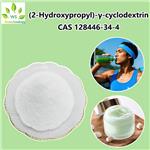
- $0.00 / 1kg
- 2025-11-19
- CAS:128446-34-4
- Min. Order: 1kg
- Purity: 99%
- Supply Ability: 20MT
- (2-Hydroxypropyl)-gamma-cyclodextrin
-
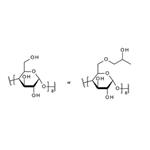
- $62.00 / 25g
- 2025-11-19
- CAS:128446-34-4
- Min. Order: 25g
- Purity: 0.98
- Supply Ability: 25kg
- (2-Hydroxypropyl)-γ-cyclodextrin
-
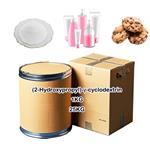
- $0.00 / 1kg
- 2025-11-19
- CAS:128446-34-4
- Min. Order: 1kg
- Purity: 99%
- Supply Ability: 1000kg





